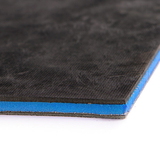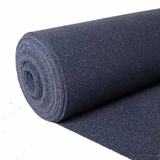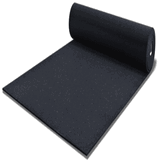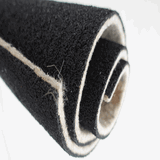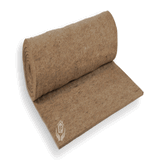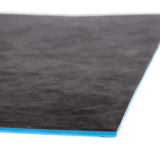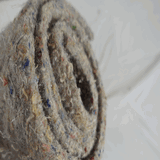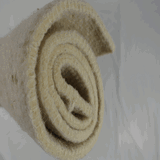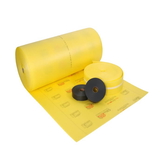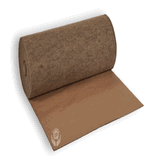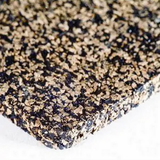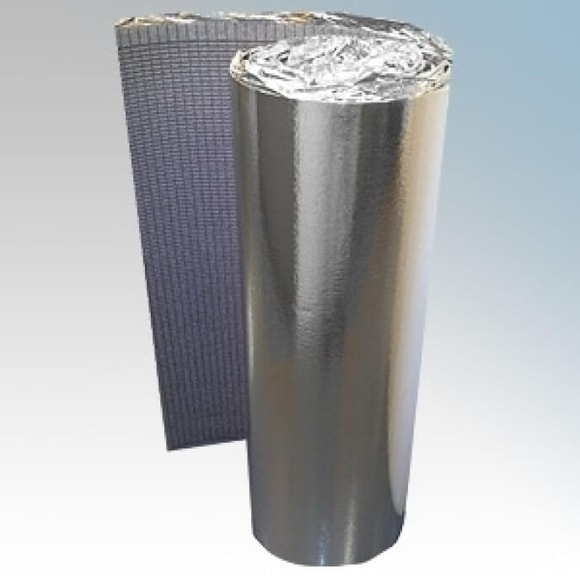- Blogs
- The Advantages and Disadvantages of an Acoustic Insulation Floor
The Advantages and Disadvantages of an Acoustic Insulation Floor

If you live in a noisy environment, or if you want to reduce the sound transmission between floors in your home or building, you might be interested in acoustic insulation floor.
An acoustic insulation floor is a type of floor that has sound-absorbing and sound-blocking properties, which can improve the acoustic comfort and privacy of your space.
In this article, we will explore the advantages and disadvantages of an acoustic insulation floor, and how to choose the best one for your needs.
What is an acoustic insulation floor?
An acoustic insulation floor is a floor that has a layer of acoustic material under the surface, such as stone wool, foam, rubber, or vinyl. This layer acts as a barrier that reduces the impact and airborne sound transmission between floors.
Impact sound is the sound caused by physical contact with the floor, such as footsteps, furniture moving, or dropping objects. Airborne sound is the sound that travels through the air, such as voices, music, or traffic noise.
There are different types of acoustic insulation floors, depending on the structure and installation method. Some common types are:
- Floating floor: This is a type of floor that is not attached to the subfloor, but rests on top of a resilient layer of acoustic material. The resilient layer can be dry laid or poured over the subfloor, creating an air gap that reduces the vibration transmission. The floating floor can be made of wood, laminate, vinyl, or carpet.
- Acoustic underlay: This is a type of floor that has a thin layer of acoustic material under the surface, which can be attached to the subfloor or not. The acoustic underlay can be made of foam, rubber, felt, or cork. The surface can be any type of flooring material, such as wood, laminate, vinyl, or carpet.
- Acoustic overlay: This is a type of floor that has a thick layer of acoustic material over the subfloor, which can be attached to the subfloor or not. The acoustic overlay can be made of wood fibreboard, chipboard, or plywood. The surface can be any type of flooring material, such as wood, laminate, vinyl, or carpet.
What are the advantages of an acoustic insulation floor?
An acoustic insulation floor can offer many benefits for your home or building, such as:
- Improved acoustic comfort: An acoustic insulation floor can reduce the noise levels in your space by absorbing and blocking unwanted sounds from outside or from other floors. This can create a more peaceful and relaxing environment for you and your family or colleagues.
- Increased privacy: An acoustic insulation floor can prevent your conversations and activities from being heard by others on different floors. This can protect your personal and professional privacy and confidentiality.
- Enhanced thermal performance: An acoustic insulation floor can also act as a thermal insulator, keeping your space warmer in winter and cooler in summer. This can reduce your energy consumption and bills, as well as your carbon footprint.
- Added value: An acoustic insulation floor can increase the value and attractiveness of your property, especially if you live in a multi-occupancy building or a noisy area. This can make your property more appealing to potential buyers or tenants.
What are the disadvantages of an acoustic insulation floor?
An acoustic insulation floor can also have some drawbacks that you should consider before installing one, such as:
- Higher cost: An acoustic insulation floor can be more expensive than a regular floor, depending on the type and quality of the material and installation. You might need to hire a professional installer to ensure proper fitting and performance. You might also need to obtain planning permission or approval from your landlord or building manager before installing an acoustic insulation floor.
- Reduced ceiling height: An acoustic insulation floor can reduce the ceiling height of your space by adding extra thickness to the floor. This might affect the aesthetics and functionality of your space, especially if you have low ceilings or fixtures that need clearance.
- Potential moisture problems: An acoustic insulation floor can trap moisture between the layers of material, which can cause mould growth, rotting, or warping. This can affect the health and durability of your floor and subfloor. You might need to install a vapour barrier or ventilation system to prevent moisture problems.
How to choose an acoustic insulation floor?
If you decide to install an acoustic insulation floor in your home or building, you should consider some factors to choose the best one for your needs, such as:
- The level of noise reduction: Different types and qualities of acoustic insulation floors have different levels of noise reduction performance. You should check the sound transmission class (STC) and impact insulation class (IIC) ratings of the product, which measure how well it blocks airborne and impact sound respectively. The higher the ratings, the better the noise reduction performance.
- The type of subfloor: Different types of subfloor have different characteristics and requirements for installing an acoustic insulation floor. For example, concrete subfloors are more rigid and dense than timber subfloors, which means they need a more resilient and flexible acoustic material to reduce sound transmission. You should consult the manufacturer or installer of the product to ensure compatibility and suitability with your subfloor.
- The type of surface: Different types of surfaces have different acoustic properties and preferences. For example, hard surfaces such as wood, laminate, or vinyl are more prone to impact sound than soft surfaces such as carpet or cork. You should choose a surface that matches your style and comfort, as well as your acoustic needs.
- The building regulations: Different countries and regions have different building regulations and standards for acoustic insulation floors. You should check the local building codes and guidelines to ensure compliance and safety with your acoustic insulation floor. You should also check the fire resistance and thermal conductivity ratings of the product, which measure how well it resists fire and heat transfer respectively.
Acoustic Underlay Products with us
Enhance your home's comfort and tranquillity with our White Wool Felt Carpet Underlay. Crafted from 100% natural virgin animal wool, this sustainably sourced underlay offers exceptional thermal and acoustic insulation, ensuring a quieter and cosier space.
It provides superior underfoot comfort, safeguards your carpets from wear and tear, and naturally retards flames for added safety.
Experience the best in floor insulation and soundproofing with our eco-friendly, hypoallergenic solution. Ideal for bedrooms and living rooms, this high-quality underlay is the perfect choice for a peaceful and comfortable home environment.
WarmUp Insulated Underlay - Underfloor Insulation - 1.2M Wide ![WarmUp Insulated Underlay - Underfloor Insulation - 1.2M Wide]()
WarmUp Insulated Underlay - Enhance your underfloor heating system's performance with our 6mm deep insulated underlay. Crafted from grooved polystyrene with silver foil and adhesive overlap, it efficiently reflects heat upwards for optimal thermal and acoustic insulation.
Keep your space warm, save on energy bills, and enjoy soundproofed floors. Ideal for all floor types, this underlay prevents moisture ingress, ensuring a cosy and efficient home. Available in various coverage rolls, it's a must for underfloor heating systems.
Recowool - Felt Carpet Underlay - 11M x 1.37M
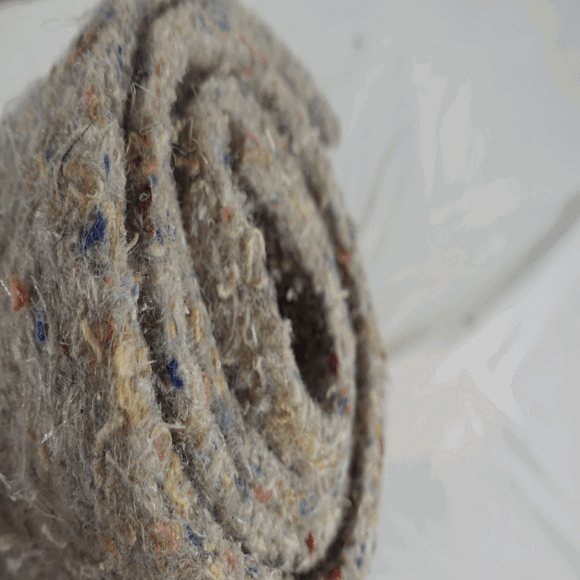 Recowool Felt Carpet Underlay by Anglo Recycling – Your Key to Enhanced Comfort and Sustainability!
Recowool Felt Carpet Underlay by Anglo Recycling – Your Key to Enhanced Comfort and Sustainability!
Enhance your home with this eco-friendly, high-quality felt underlay. Made from 80% unused wool offcuts, it boasts impressive thermal insulation with a TOG rating of 2.5-3.4, keeping your floors warm and cosy. Plus, its remarkable 29-31dB sound impact reduction ensures a quieter environment.
Not only does Recowool extend the life of your carpets, but it's also a sustainable choice, preventing materials from ending up in landfills. Easy to install and breathable, it's perfect for homes, as well as hospitality and leisure settings. Choose Recowool for lasting comfort and a greener future. Please note, this is a made-to-order product.
Frequently Asked Questions
Q: What are the advantages of acoustic insulation flooring?
A: Acoustic insulation flooring offers numerous benefits, such as reducing noise levels, improving sound quality, and enhancing overall comfort in a space. It helps to block sound transmission, absorb sound waves, and minimize the impact sound, ensuring a quieter environment.
Q: How does acoustic insulation flooring work?
A: Acoustic insulation flooring works by using materials with soundproofing properties, such as mineral wool or acoustic foam. These materials are designed to absorb sound energy and prevent it from traveling through the floor. This helps in reducing the transfer of airborne and impact sound, significantly reducing noise levels.
Q: Can acoustic insulation flooring be used in both residential and commercial spaces?
A: Yes, acoustic insulation flooring can be used in both residential and commercial spaces. It is particularly useful in areas where noise reduction is desired, such as homes, offices, recording studios, theaters, or any space where sound control is important.
Q: What are the different types of acoustic insulation flooring materials?
A: There are several types of materials used in acoustic insulation flooring, including mineral wool, rockwool insulation, acoustic panels, and foam. These materials are specifically designed to absorb sound waves and minimize sound transmission, providing an effective soundproofing solution.
Q: How effective is acoustic insulation flooring in reducing noise?
A: Acoustic insulation flooring is highly effective in reducing noise levels. By blocking sound transmission and absorbing sound waves, it greatly reduces the amount of sound that passes through the floor. This results in a quieter and more peaceful environment.
Q: Can acoustic insulation flooring be used for both floor and ceiling?
A: Acoustic insulation flooring is primarily designed for floors, but it can also be used for ceilings. The same principles of soundproofing apply to both applications – blocking sound transmission and absorbing sound waves – ensuring improved acoustic performance in both spaces.
Q: Is acoustic insulation flooring also a good thermal insulator?
A: While acoustic insulation flooring does provide some thermal insulation properties, its main purpose is to absorb sound. For optimal thermal insulation, it is recommended to use dedicated thermal insulation materials in addition to acoustic insulation flooring.
Q: Can I install acoustic insulation flooring myself or do I need professional assistance?
A: The installation of acoustic insulation flooring can be a complex process, especially when it involves additional construction work or modifications. It is generally recommended to seek professional assistance to ensure proper installation and optimal soundproofing performance.
Q: How long does acoustic insulation flooring last?
A: The lifespan of acoustic insulation flooring depends on various factors, such as the quality of materials used, maintenance, and the level of foot traffic. However, with proper installation and care, it can last for many years, providing long-term noise reduction benefits.
Q: Can acoustic insulation flooring be combined with other soundproofing solutions?
A: Yes, acoustic insulation flooring can be combined with other soundproofing solutions to enhance its effectiveness. For example, using acoustic panels on walls or applying soundproofing materials to doors can further improve sound control and create a more acoustically optimized space.
Conclusion
An acoustic insulation floor can be a great solution for improving the sound quality and comfort of your space. However, it also has some disadvantages that you should weigh against the benefits.
You should also consider some factors to choose the best type and quality of acoustic insulation floor for your needs.
If you need more information or advice on acoustic insulation floors, you can visit our website Buy Insulation Online or contact us today. We are happy to help you with your acoustic insulation needs.

Samuel Hitch
Managing Director
Buy Insulation Online.
Leave A Reply
Your feedback is greatly appreciated, please comment on our content below. Your email address will not be published. Required fields are marked *
